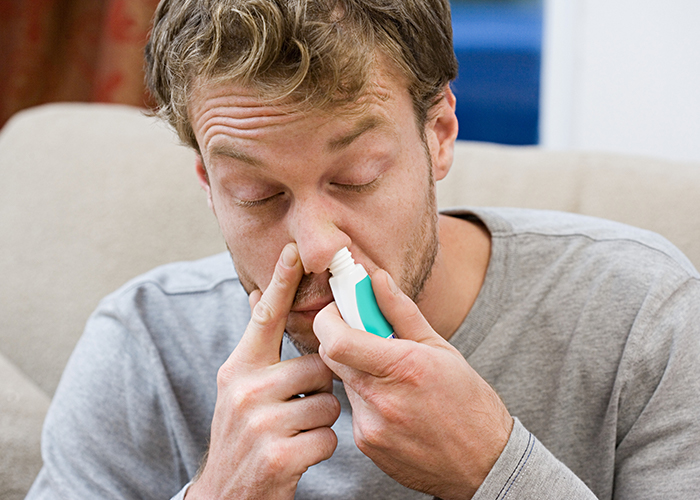
- Topical decongestants can have a role if nasal congestion is a problem. There is some evidence supporting the use of topical sympathomimetics, which work by constricting mucosal blood vessels, reducing oedema and facilitating drainage.
They should only be used for a maximum of five to seven days due to the risk of secondary vasodilation and associated increase in congestion upon stopping (rhinitis medicamentosa). According to the BNF, ephedrine is considered the safest sympathomimetic, with xylometazoline and oxymetazoline more likely to cause rebound congestion.
- Oral decongestants such as pseudoephedrine and phenylephrine have little evidence of efficacy but are included in many OTC cold remedies and, unlike their locally administered counterparts, are not associated with rebound congestion when stopped. Their sympathomimetic mode of action means they should be avoided by individuals taking monoamine oxidase inhibitors.
Caution is needed in diabetes, hypertension, hyperthyroidism, prostatic hypertrophy, ischaemic heart disease or for individuals susceptible to closed-angle glaucoma. They can also be used as ingredients to manufacture drugs of abuse, so their sales are restricted; vigilance by pharmacy staff is still important.
